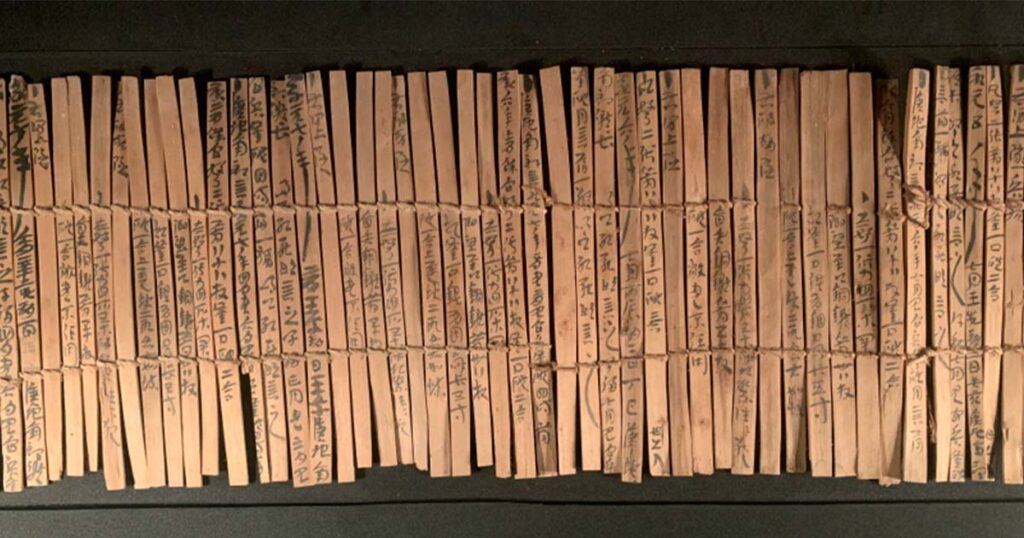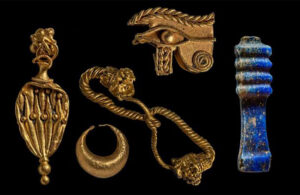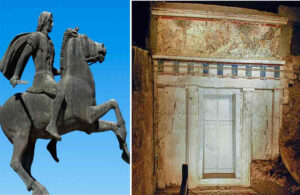In a remarkable feat of scholarship, researchers from Tsinghua University in China have unveiled the secrets hidden within 2,500-year-old bamboo slips, shedding light on ancient esoteric knowledge that has long remained enigmatic.
Unveiling Lost Classics: A Profound Discovery
The collection of bamboo slips, comprising five sets, was initially unearthed by Tsinghua University researchers in 2008. Now, a subsequent team from the same institution has unveiled the findings of their extensive research, revealing insights into the rituals and ceremonial customs of high officials dating back over 2,000 years.

Delving into Ancient Rites and Music
At a recent press conference, the bamboo slips were hailed as “lost classics,” offering a glimpse into a bygone era not documented in extant literature. According to Huang Dekuan, director of the Research and Conservation Center for Excavated Texts at Tsinghua University, these texts originated during the Warring States Period and the subsequent Qin Dynasty, spanning from 475 to 206 BC.
Unraveling Mysteries: The Content of the Bamboo Texts
The translated bamboo texts encompass a diverse array of subjects, ranging from the meticulous protocols surrounding the meals of high-ranking officials to the intricate system of ancient Chinese musical notation. Additionally, philosophical treatises exploring the spiritual connection between humanity and the heavens offer profound insights into the intellectual pursuits of ancient Chinese thinkers.
Bridging Past and Present: Insights into Pre-Qin Culture
The translated bamboo slips serve as invaluable resources for understanding the rites, music, and philosophical thought of the pre-Qin period. Drawing parallels to the renowned “Book of Etiquette and Ceremonial” attributed to Confucius, these texts illuminate the importance of etiquette and moral conduct in fostering social harmony.
Harmonizing Music and Geometry: A Unique Fusion
Of particular interest are the two music books found among the bamboo slips, which provide insights into China’s early music theory system. Fusing music with geometry, these texts reveal how the points of a pentagram were used to represent traditional Chinese musical notes, offering a novel perspective on the intersection of music and mathematics in ancient Chinese culture.
Probing Philosophical Depths: The Quest for Understanding
One of the philosophical documents, titled “Fear Heaven” and “Use Body,” delves into the profound relationship between humanity and the celestial realm. Through 17 bamboo slips, this philosophical treatise explores the intricacies of human subjectivity and demonstrates the intellectual vigor of individuals during the Warring States period.
Echoes of Literary Inspiration: The Glass Bead Game Reimagined
For those familiar with Hermann Hesse’s novel “The Glass Bead Game,” the discovery of these bamboo slips evokes parallels to the central narrative of the book. In “The Glass Bead Game,” scholars engage in a complex intellectual pursuit that combines music, philosophy, and geometry to create a harmonious expression of human understanding. While the novel does not specifically reference ancient Chinese philosophy and music, it embodies the universal themes of knowledge synthesis and the interconnectedness of human experience, mirroring the wisdom encapsulated within the bamboo texts.
As scholars continue to decipher and interpret these ancient relics, they unveil a tapestry of knowledge that transcends time, offering profound insights into the cultural heritage and intellectual achievements of ancient China. Through their diligent efforts, researchers are preserving and illuminating the rich tapestry of human history encoded within these fragile bamboo slips.






